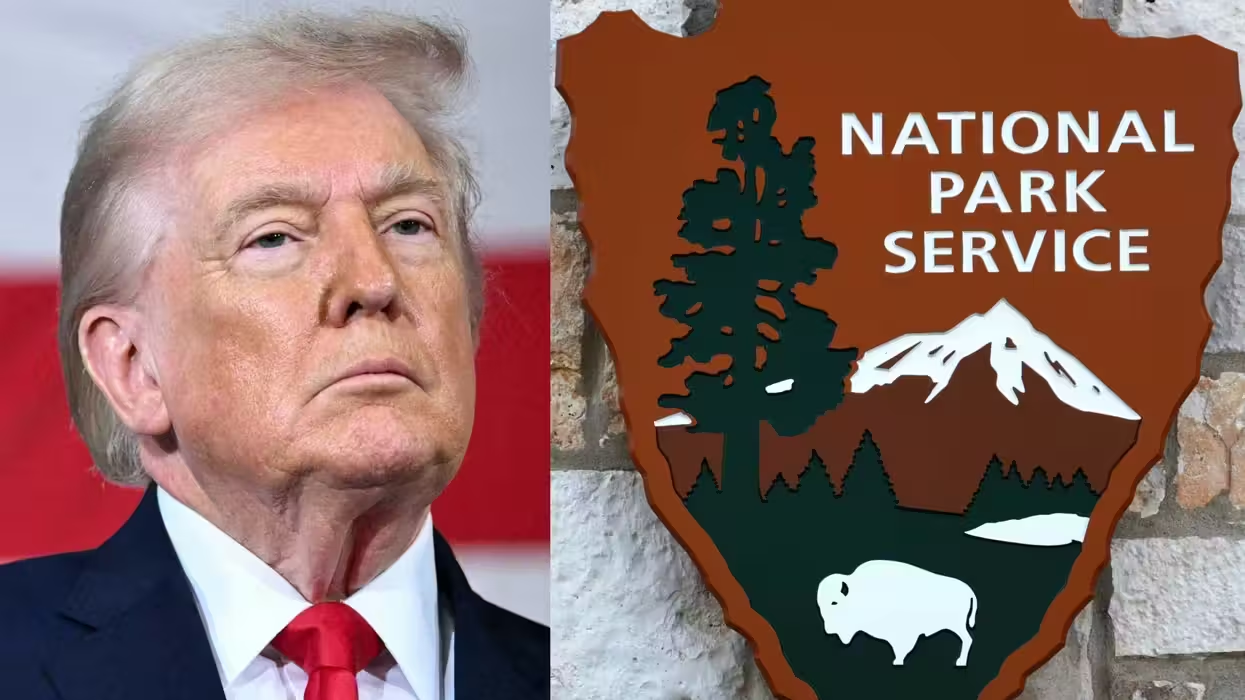© 2026 Blaze Media LLC. All rights reserved.
"Their nerves and tension are about to explode."
SAN JOSE MINE, Chile (AP) - Chile's 33 trapped miners finally have a way out.
A drill broke through to their cavern more than 2,000 feet (624 meters) underground, creating a shaft just wide enough for a specially designed escape capsule to pass through.
The sound of the siren that signalled the breakthrough thrilled the miners' families and spread joy across a nation that sees the rescue drama as a test of Chile's character.
President Sebastian Pinera says what might have been a tragedy has become a blessing. A record 66 days have passed since their gold and copper mine collapsed above them, and the 33 miners are now just days away from reaching the outside world.
THIS IS A BREAKING NEWS UPDATE. Check back soon for further information. AP's earlier story is below.
SAN JOSE MINE, Chile (AP)—Sixty-six agonizing days after their gold and copper mine collapsed above them, 33 miners anxiously awaited a way out early Saturday as a drill carved into the last layers of rock above their underground purgatory.
 Outside the mine, relatives staying in the tents and motor homes known as "Camp Hope" spent a restless night waiting to hear the siren blast that would announce the drill's success.
Outside the mine, relatives staying in the tents and motor homes known as "Camp Hope" spent a restless night waiting to hear the siren blast that would announce the drill's success.
The "Plan B" drill was poised to win a three-way race against two other drills to carve a hole wide enough for an escape capsule to pull the miners out one by one.
While "Plan A" and "Plan C" stalled after repeatedly veering off course, officials said Friday that the "Plan B" drill was nearing the miners at a point 2,047 feet (624 meters) below the surface.
Mining Minister Laurence Golborne estimated the drill would break through by midday Saturday.
Chileans have been captivated by the rescue drama, coming to see it as a test of the nation's character and pride. Knowing that the actual rescue is now just days away also has eased some of the miners' families' anxiety.
But now comes a difficult judgment call: The rescue team must decide whether it is more risky to pull the miners through un-reinforced rock, or to insert tons of heavy steel pipe into the curved shaft to protect the miners on their way up.
Steel pipe would prevent stones from falling and potentially jamming the capsule. But it wouldn't save a miner if the unstable mine suffered  another major collapse, and might itself cause a disastrous setback, the mining minister said.
another major collapse, and might itself cause a disastrous setback, the mining minister said.
"You would have to put though a 600-meter hole a lot of pipes that weigh more than 150 tons," Golborne warned. "And this structure can be set in a position that also could block the movement of the Phoenix (escape capsule). It's not an easy decision to make."
Once the shaft is completed, experts will lower a video camera through the hole. If the examination persuades engineers that the shaft is smooth, strong and uniform enough to let the capsule pass without significant obstacles, then rescuers plan to start pulling the men out one by one as early as Tuesday.
If steel pipe is needed, that work would put off the rescue for three to eight more days.
The miners will be initially examined at a field hospital where they can be briefly reunited with up to three close relatives. Then, they'll be flown by helicopter in small groups to the regional hospital in Copiapo, where 33 fresh beds await to care for them for no fewer than 48 hours.
Only after their physical and mental health is thoroughly examined will the men be allowed to go home.
The siren signaling completion of the rescue shaft is sure to set off a national outpouring of joy. But emotions will be especially high in "Camp Hope," where wives, parents, siblings and children of the miners have been waiting anxiously for more than two months for this moment.
"Their nerves and tension are about to explode," Chile's first lady, Cecilia Morel, said Friday after arriving to talk with the families.
Morel, who has more than 30 years' experience as a family counselor, said she encouraged them to be patient and even use breathing exercises to keep their emotions in check. She promised she would stay nearby so she can keep counseling them in the next few days.
"My interest is to try to contribute and create an atmosphere that allows them to be more calm, to be more relaxed, to learn some things," she added.
___
Associated Press writers Vivian Sequera at the mine and Eva Vergara in Copiapo, Chile, contributed to this story.
Want to leave a tip?
We answer to you. Help keep our content free of advertisers and big tech censorship by leaving a tip today.
Want to join the conversation?
Already a subscriber?
more stories
Sign up for the Blaze newsletter
By signing up, you agree to our Privacy Policy and Terms of Use, and agree to receive content that may sometimes include advertisements. You may opt out at any time.
Related Content
© 2026 Blaze Media LLC. All rights reserved.
Get the stories that matter most delivered directly to your inbox.
By signing up, you agree to our Privacy Policy and Terms of Use, and agree to receive content that may sometimes include advertisements. You may opt out at any time.






